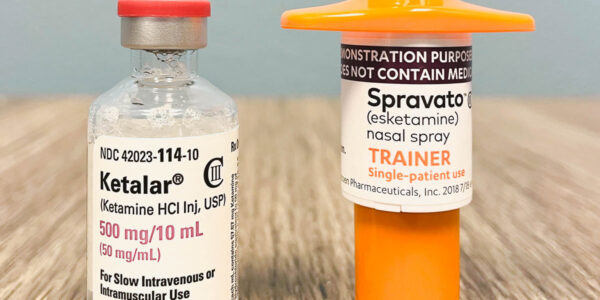LISTEN TO THIS ARTICLE:
Nutritional Psychiatry is a newly emerging field that involves the practice of using food and food supplements as treatment for mental health conditions. The field’s pioneer is Dr. Umi Naidoo, a Harvard educated psychiatrist, a trained nutrition specialist, and a professionally trained chef. She founded the first hospital-based Nutritional Psychiatry service in the United States at Massachusetts General Hospital. Dr. Naidoo is the best-selling author of This is Your Brain on Food and soon-to-be released Calm Your Mind with Food. She and other prominent physicians are taking an in-depth look at the role diet plays in developing or reducing symptoms of depression.
The gut is referred to as the “second brain” and for good reason. Ninety-five percent of the body’s serotonin is produced in the gut. Serotonin is one of the main neurotransmitters that helps regulate mood. Depression is now the leading cause of disability worldwide affecting more than 320 million people of all ages. Nearly 1 in every 5 adults in the United States will experience depressive symptoms during their lifetime. While medication and counseling are often used with good effect to help manage depression, there is a critical need to find methods that aim to treat the root cause of the condition rather than only manage the symptoms. Altering a person’s diet could be a key part of treating and preventing depression.

Inflammation and the rise of chronic disease
Professor Gary Egger, an academic and author based in Australia, is a public health and epidemiology expert in chronic disease management. He speaks about the role that the cheap production of highly processed foods and an inactive lifestyle have played in the development of chronic disease. He states, “For the last 30 to 40 years, in particular, we have experienced the emergence of a sedentary, nutritionally engineered, consumption-driven, security-conscious, screen-focused environment, the likes of which have never before been experienced by humans.” Egger notes that it is no coincidence how chronic diseases have also sharply risen during this time. While developed countries have created a more efficient lifestyle, it has come at a large cost to the health of their populations.
Significant evidence indicates inflammation as a factor in the development of chronic diseases including depression. Classic, acute inflammation was originally described as a beneficial immune response by the body to fight infection and heal tissue damage. Think about what happens if you twist your ankle. It swells and becomes inflamed at the site of the injury. This is actually a good thing because your immune system is actively working to correct the problem. Once the body heals the ankle, the inflammation goes away.
Unfortunately, a new type of inflammation, which experts are referring to as meta inflammation, is actually harming the body rather than helping it. Meta inflammation is a chronic, low-grade inflammatory response that affects the entire body. It results in a smaller rise in immune system markers and produces antigens that the body has a more difficult time recognizing as foreign invaders. This constant state of low-level inflammation reduces a person’s metabolism and disrupts balance in the body, leading to chronic disease.
Inflammation and depression
Research has shown a clear link between depression and inflammation. A number of prevalent chronic diseases, such as diabetes, metabolic syndrome, rheumatoid arthritis, and cardiovascular disease, are associated with an increased risk of developing depression. Nearly 20% of patients with cardiovascular disease experience major depressive disorder (MDD). Patients with diabetes are twice as likely to develop depressive symptoms. Moreover, approximately one-third of people with depression who do not have another chronic disease have markers that indicate increased inflammation. Unlike classic inflammation, meta inflammation never goes away unless a person adopts a healthier lifestyle. Nutrition plays a key role in reducing whole-body inflammation.
Diet and depression
Studies have demonstrated a relationship between decreased depressive symptoms and following certain types of diets like the Whole-Food Plant-Based (WFPB) Diet, the Mediterranean Diet, and the Paleo Diet. WFPB emphasizes vegetables, fruits, whole grains, legumes, seeds, and nuts. This diet avoids animal products and eliminates refined sugars and oils. Positive effects include increasing metabolism, reducing inflammation, and increasing good gut bacteria. The Mediterranean Diet prioritizes consumption of fruits, vegetables, legumes, nuts, seeds, and olive oil. Moderate amounts of dairy, poultry, eggs, and seafood are eaten while red meat is enjoyed on rare occasions. Benefits include lowering lipid levels, protecting against oxidative stress and inflammation, reducing the risk of cancer, and improving gut health.
The Paleo Diet focuses on eating fruits, vegetables, lean meats, eggs, nuts, seeds, and oils. Grains, dairy, and legumes are avoided due to their potential inflammatory effects. The Paleo Diet has been associated with decreased depression, anxiety, and stress. It is important to remember that these diets are not strict guidelines for what a person should eat. The common connection between them is that they focus on minimally processed, nutrient-dense whole foods while eliminating highly caloric, processed foods.
The SMILEs Trial
Randomized control trials (RCTs) are considered the gold standard of research due to their rigorous experimental design. When it comes to diet and depression, sadly there aren’t many. One of the few RCTs conducted was titled the SMILEs Trial. A team of researchers from Australia and New Zealand studied the effects of diet on depression and anxiety in 67 participants who were split into a diet intervention and control group. Participants in the diet intervention group received seven, 60-minute individual nutritional consulting sessions using a modified Mediterranean diet model. The intervention included personalized dietary advice, nutritional counseling support, motivational interviewing, and mindful eating.
The primary focus of the dietary intervention was on consuming key food groups. These include whole grains, vegetables, fruit, legumes, low-fat and unsweetened dairy, lean red meat, chicken, eggs, and olive oil. Participants in this group also reduced intake of sweets, refined cereals, fried food, fast food, processed meats, and sugary drinks. After 12 weeks, members of the dietary intervention group showed a statistically significant reduction in depressive and anxiety symptoms compared to the control group.
Depression and diet supplementation
A review of research on vitamin supplementation shows a link between depression and nutritional deficiencies in a person’s diet. Depressive symptoms have been associated with decreased Vitamin D, Omega-3 fatty acids, Vitamin B-12 and B-6, folic acid, zinc, magnesium, selenium, and copper. These play an important role in the production, regulation, and transmission of neurotransmitters, such as dopamine, serotonin, and norepinephrine. Adding foods rich in these vitamins could help decrease depression. Before starting any supplement or new diet, it is important to work closely with your doctor and a registered dietitian. Over-supplementation of certain vitamins can also be harmful to both your body and brain, which can lead to negative side effects. Providers will typically order a blood test to determine your levels before prescribing any vitamins.
The gut microbiome and the potential of probiotics
Recent studies have found a communication link between the brain and the gut called the microbiome. It has nearly one hundred trillion bacteria that are essential for health. Incredibly, there are 10 – 100 times more bacteria in the gut than there are eukaryotic cells in the entire human body. Thus, it is not surprising that a healthy gut is critical for mental health. The opposite is true, too. An unhealthy gut microbiome can contribute to the development of many mental health conditions, especially depression. Studies have shown a relationship between probiotic supplementation and decreased depressive symptoms.
Probiotics are involved in the production of neurotransmitters, have anti-inflammatory effects, and help the immune system. Taking a daily probiotic supplement may decrease depressive symptoms but be sure to check in with a qualified health professional first. You can also try adding foods to your diet that naturally contain probiotics such as yogurt, kefir, tempeh, pickles, sauerkraut, and cottage cheese.
A promising approach for the treatment of depression
There is no denying that healthy food and nutrient supplementation play a key role in the treatment and prevention of depression. What we put into our bodies has a direct influence on our mental health. It can help reduce whole-body inflammation that contributes to symptoms. Yet, it’s still very complex. Think of your gut microbiome as a diverse ecosystem. While mine might be a rainforest, yours may be a grassland, and another person’s may be a desert. All three require different resources to thrive. This is why strictly following one diet opposed to another isn’t always beneficial and there is no one-size fits all treatment when it comes to nutrition and depression.
It can be frustrating and confusing at times but don’t give up. The best place to start is by adding whole foods with minimal ingredients into your diet. Also, stay away from processed foods with a long list of ingredients that you cannot pronounce. Try this for 2 -3 weeks and see how it makes you feel. You can add foods back into your diet but pay attention to what you eat and what symptoms you experience. Keeping a daily journal may be beneficial. Be sure to seek the help of a qualified professional, such as a primary care provider, registered dietitian, psychiatrist, and gastroenterologist who can help you figure out how best to nourish your mind and body. Food has the potential to be our best medicine in the treatment of mental health conditions. It really is true what they say: We are what we eat.


 Learn
Learn Read Stories
Read Stories Get News
Get News Find Help
Find Help
 Share
Share
 Share
Share
 Share
Share
 Share
Share



